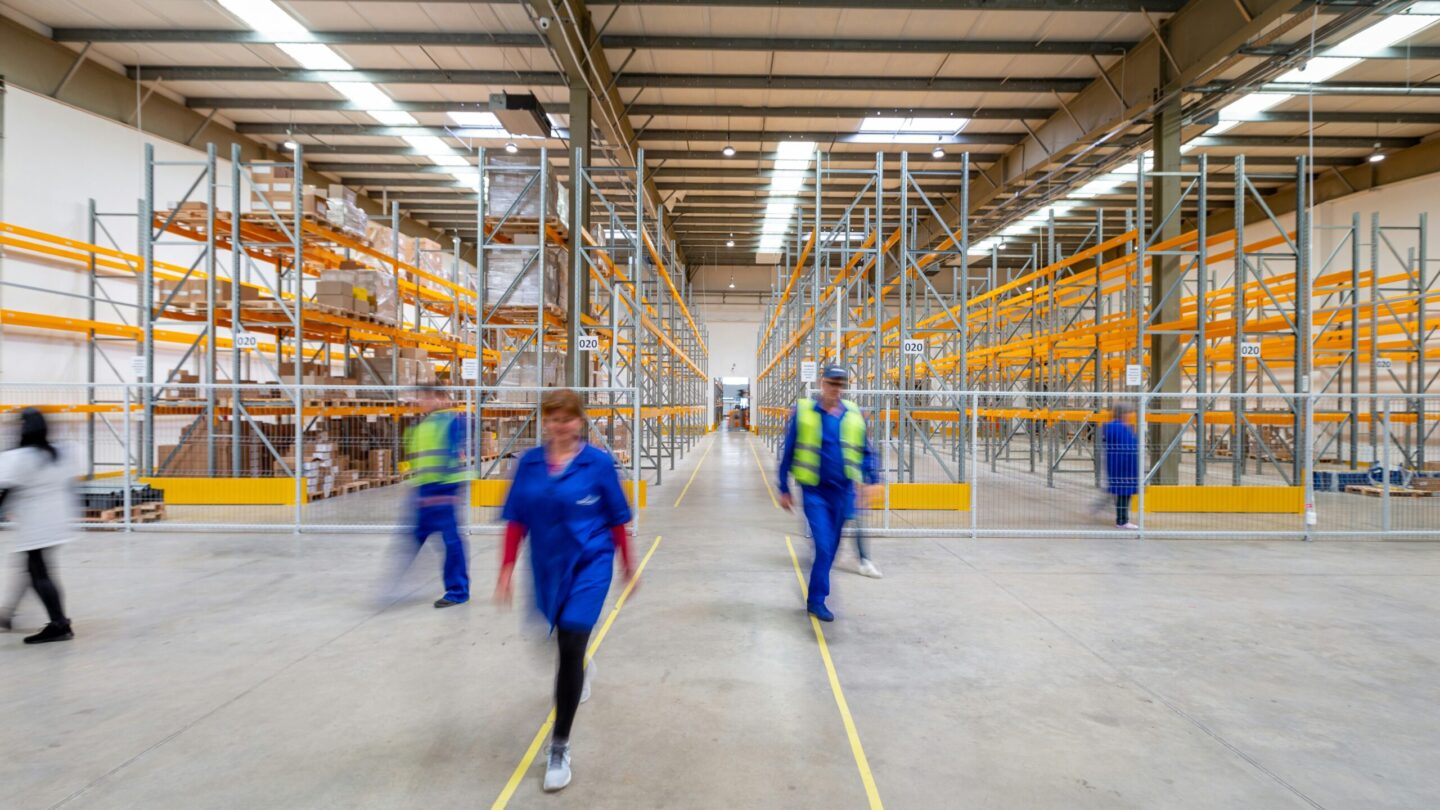
With globalization and e-commerce, economic relationships are more varied and intertwined than ever before. And this is also true of the flow of goods. For companies wishing to outsource all or part of their supply chain, contract logistics specialists coordinate these different flows of goods and use their expertise to ensure that the various supply chain processes fit together perfectly. They optimize the value chain and develop tailor-made logistics solutions for their customers. In addition to increased competitiveness and flexibility, outsourcing logistics processes has many other benefits for companies.
What are contract logistics?
Companies manufacturing, selling, or distributing products must get them from the production site or warehouse to retailers and consumers. This supply chain often includes additional services such as storage logistics, packaging, repackaging, and returns management. For companies, this involves considerable cost and energy, which is why there is an increasing tendency to outsource these various tasks.
In this case, the client and the logistics company enter into a contractual business relationship for a defined period, during which the logistics service provider takes charge of all or part of the logistics services defined in the contract.

Contract logistics: different levels
Depending on the degree of involvement of the logistics service provider in its customer’s supply chain and the type of services provided, it is classified into different levels:
- First Party Logistics (1PL): Outsourcing here only concerns the transport of goods, as well as their loading and distribution.
- Second Party Logistics (2PL): In addition to transporting goods, the logistics provider also handles their storage and warehousing, usually on its own premises made available to its customers.
- Third-Party Logistics (3PL): It is at this level that we really start to talk about contract logistics because here, the service takes on another dimension by acting on the customer’s entire supply chain. The service provider takes charge of warehousing, order preparation, and transport, as well as value-added services (customs formalities, unpacking, labeling, storage, quality control, etc.), with a view to improving performance and profitability.
- Fourth Party Logistics (4PL): At this level, the contract logistics service provider simply acts as an advisor to optimize logistics processes. It does not itself provide warehouses, staff or vehicles, but instead commissions subcontractors to do so.
- Fifth Party Logistics (5PL): This level is mainly represented in e-commerce. The contract logistics of these large service providers combine the services offered by 3PLs and 4PLs.
The advantages of contract logistics
For companies using service providers, outsourcing is often synonymous with reducing costs and improving performance. Companies no longer have to rent or buy warehouses and the associated technology. Instead, companies benefit from the warehouse logistics of their contract logistics partners. 3PL companies, for example, make their warehouses available — and at the same time, have to ensure that they work as efficiently as possible to keep costs down.
With a state-of-the-art, automated warehouse, 3PLs can offer their contract logistics partners a number of advantages, including:
- Transparent, calculable costs.
- Scalability of the warehouse, so it can respond to seasonal peaks.
- Reliable systems and reduced staffing bottlenecks.

In return, the 3PL also benefits from the use of an automated warehouse shared by several of its customers:
- Products from several principals can be stored, picked, and prepared on the same site.
- Staff costs are reduced, and human error is minimized.
- The volume of storage or the number of autonomous mobile robots can be quickly adapted to suit the varying quantities to be prepared. This largely avoids costly ‘downtime’ or lost revenue due to unanticipated ‘peaks’.
The individual services are precisely defined in the contracts, giving the company total control over costs and a high degree of planning certainty. Companies also benefit from their contractual partner’s many years of experience, who optimizes processes and adapts them individually to the customer’s requirements. With 3PL providers, customers do not need to rent or build a warehouse but benefit from their partner’s existing storage infrastructure. The result for companies is an attractive price and performance ratio.
The Skypod system and contract logistics
Exotec helps logistics service providers to optimize their preparation. Our Skypod® system, which includes autonomous mobile robots, picking stations, and Deepsky® warehouse software, ensures efficient and flexible order picking around the clock.
Ready To Transform Your Warehouse?
Contact us to find out more about how we can ensure your business receives the optimum warehouse automation solution.
Share
Events
-
September 25, 2024 | LondonRetail Gazette Efficiency Debate
-
September 29, 2024 | NashvilleCSCMP Edge
-
October 2, 2024 | ManchesterTomorrow's Warehouse - Manchester